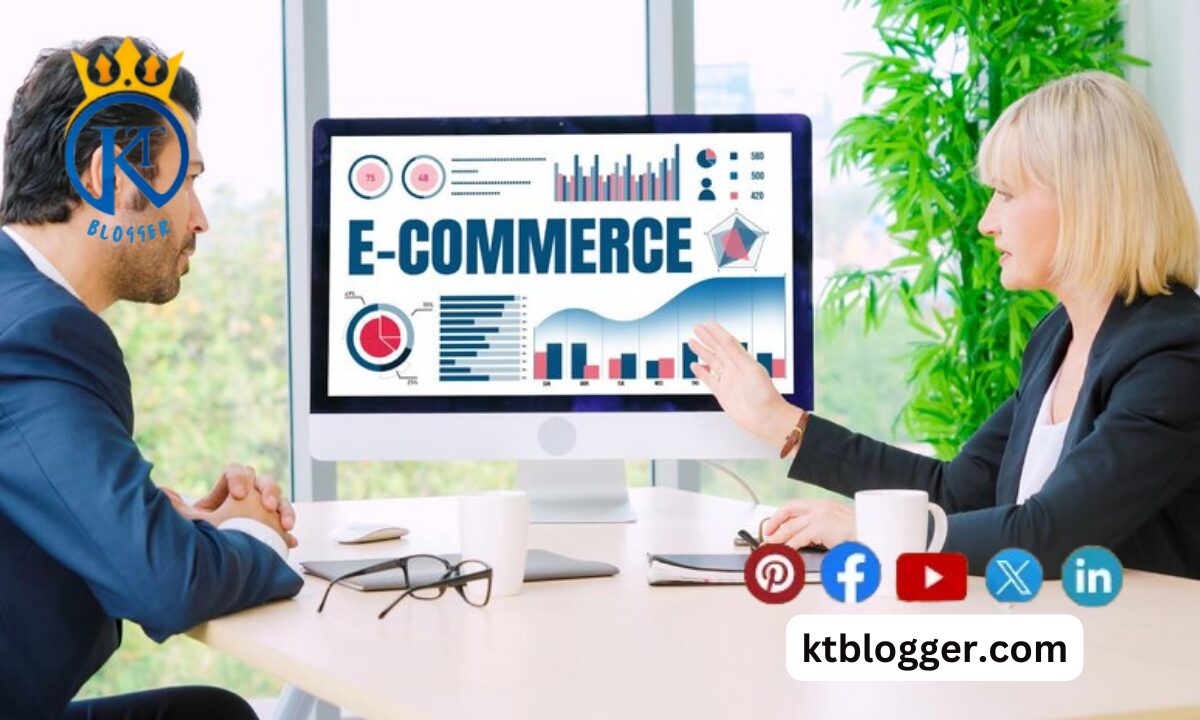Do you want to learn how to start ecommerce business? This guide will help you set up your own online store step by step.
Starting an online store might seem hard, but it’s not impossible. Yes!
To embark on your ecommerce journey, start by crafting a solid ecommerce business plan, considering factors like product sourcing for ecommerce, finding profitable products to sell, and choosing an ecommerce platform that suits your needs.
Research ecommerce marketing strategies to promote your online store effectively. If funding is a concern, explore options like starting an ecommerce business without money initially. Remember to address ecommerce legal considerations and prioritize excellent ecommerce customer service.
In this guide, you’ll find out how to start ecommerce business in five easy steps. You’ll also learn about the costs involved and get some extra tips to help you succeed.
Content
How to Start Ecommerce Business in 2024 in 5 Easy Steps?
To start an ecommerce business, consider platforms like Amazon for wider reach. Research ecommerce business ideas and examples for inspiration.
Understand what ecommerce is and its potential profitability. Learn about dropshipping and its benefits. Calculate the cost of starting an ecommerce venture, including inventory management, shipping, and marketing.
Explore ecommerce SEO, advertising, and social media strategies for growth. Regularly analyze and optimize your ecommerce performance for success.

Here’s a breakdown of the key steps to get you started:
1. Choosing Your Niche
The first step in starting your online business is choosing a niche, which means finding a specific area or market segment to focus on. Instead of trying to appeal to everyone, successful online businesses often target a narrow niche where they can excel. Here’s how to choose your niche:
- Identify Your Passion and Skills: Start by thinking about what you’re passionate about and what skills or expertise you have. Your online business will be more enjoyable and sustainable if it revolves around something you love and are good at.
- Research Market Demand: Look for areas where there is demand but less competition. You can use online tools like Google Trends or keyword research tools to see what people are searching for and whether there’s a gap in the market.
- Consider Profitability: While passion is important, you also need to consider the profitability of your niche. Look for products or services that people are willing to pay for and where you can make a profit.
2. Planning Your Shipping Strategy
Before you launch your online store, it’s crucial to have a solid business plan in place. A business plan outlines your goals, strategies, and financial projections. Here’s what to include:
- Mission Statement: Define the purpose and vision of your online store. What problem are you solving for your customers, and what makes your business unique?
- Market Analysis: Research your target market and competitors. Identify your ideal customers and understand their needs and preferences.
- Marketing Strategy: Outline how you’ll promote your online store and attract customers. This may include social media marketing, email campaigns, influencer partnerships, and SEO.
- Financial Projections: Estimate your startup costs, sales forecast, and expenses. Determine how you’ll fund your business and when you expect to break even and become profitable.
3. Creating Your Business Plan
A business plan is like a roadmap that outlines your goals and how you plan to achieve them. While it may sound daunting, creating a business plan doesn’t have to be complicated. Here are the key components to include:

- Executive Summary: A brief overview of your business, including your mission and goals.
- Market Analysis: Research on your target market, including competitors and customer demographics.
- Product or Service Description: Details about what you’ll be selling and how it solves a problem or meets a need for your target customers.
- Marketing Strategy: How you’ll attract and retain customers, including your branding and promotional tactics.
- Financial Projections: Estimates of your startup costs, revenue projections, and expenses.
- Operations Plan: How you’ll run the day-to-day operations of your business, including your shipping and fulfillment processes.
4. Setting Up Your Online Store
With your business plan in hand, it’s time to set up your online store. There are many platforms available that make it easy to create a professional-looking website without any technical skills. Here’s how to get started:
- Choose an eCommerce Platform: Platforms like Shopify, WooCommerce, and Squarespace are popular options for building online stores. Consider factors like pricing, features, and ease of use when choosing the right platform for your business.
- Design Your Store: Use pre-designed templates or hire a designer to create a custom look for your store. Make sure your store reflects your brand identity and is easy to navigate for customers.
- Add Your Products: Upload photos and descriptions of your products, and set prices and shipping options. Make sure your product pages are informative and compelling to encourage sales.
- Set Up Payment Processing: Choose a payment gateway to accept payments from customers. Most eCommerce platforms offer integrations with popular payment processors like PayPal and Stripe.
- Test Your Store: Before launching your store, test it thoroughly to make sure everything is working correctly. Place test orders, check links and buttons, and ensure your checkout process is smooth.
5. Marketing Your Business
Once your store is up and running, it’s time to start promoting your business and attracting customers. Here are some effective marketing strategies for eCommerce businesses:
- Search Engine Optimization (SEO): Optimize your website for search engines to improve your visibility in search results. Focus on relevant keywords and create high-quality content that attracts organic traffic.
- Social Media Marketing: Use social media platforms like Facebook, Instagram, and Twitter to connect with your audience and promote your products. Share engaging content, run ads, and interact with followers to build brand awareness.
- Email Marketing: Build an email list of customers and prospects and send targeted email campaigns to promote your products and drive sales. Offer incentives like discounts or freebies to encourage sign-ups and conversions.
- Content Marketing: Create valuable content like blog posts, videos, or tutorials that educate and entertain your audience. This can help establish your brand as an authority in your niche and attract potential customers.
- Influencer Partnerships: Collaborate with influencers in your niche to reach a wider audience and gain credibility. Partner with influencers who align with your brand values and have a genuine connection with their followers.
Helpful Tip
Figure out who your perfect customer is before trying to get people interested in your product. When you know who would buy your product, you can plan out how they might come across it and decide which ways are best to get their attention.
Understanding if eCommerce is Right for You
Just like some kids find tests easier than homework, some people thrive when their business success is solely up to them. But figuring out if eCommerce is the right path for you isn’t about what’s objectively better or more flexible. It’s about what suits you best.

Here’s a simple way to see if eCommerce might be a good fit for you:
- Do you really like what you’d be doing? You’ll be spending a lot of time on this, so if you’re not passionate about your product, you’ll probably end up unhappy.
- Can you keep yourself on track without someone telling you what to do? Being your own boss can be tough, especially in eCommerce where you might not have coworkers to keep you motivated.
- Are you good at setting boundaries and saying no when you need to? Working on your own means you have to decide when to work and when to take a break.
- Are you okay with taking a financial risk? Starting an eCommerce business might mean going without much income for a while, especially if you’re quitting a stable job.
Starting Your eCommerce Journey
If you’ve decided that eCommerce is for you, here are some tips to help you get started:
- Play to your strengths: Pick something you’re good at. It’s easier to succeed when you’re doing something you’re already good at.
- Choose something you love: Make sure you enjoy what you’re going to be selling. If you get bored easily, it might not be the right choice.
- Focus on a specific market: Instead of trying to compete with big companies, find a smaller market where you can stand out.
- Solve a problem: Your product should solve a problem or meet a need for your customers. Make sure there’s demand for what you’re selling.
- Aim for profitability: You want to make money, so choose a product that people are willing to pay for.
- Automate tasks: Look for ways to automate parts of your business to save time and effort.
FAQs
What are the four main kinds of Online Stores?
Online stores can be divided into four types:
- B2C
- B2B
- C2C
- C2B
How much money do Online Stores make?
Online stores are making more and more money every year. By the first quarter of 2023, they made a whopping $272.6 billion!
But how much profit you make from your online store depends on other things, like how many other stores are out there and how good you are at getting people to know about your store.
Summing Up
Starting your own ecommerce business is both thrilling and tough. Focus on what you love, solve problems, and aim for profitability. Stay self-motivated, set boundaries, and be prepared for financial risks.
Sometimes, it might feel like solving a tricky puzzle, but it’s worth it in the end.
I hope this guide on “how to start ecommerce business” gives you a clear path forward. Remember, the most important thing is to start and have fun as you go.





